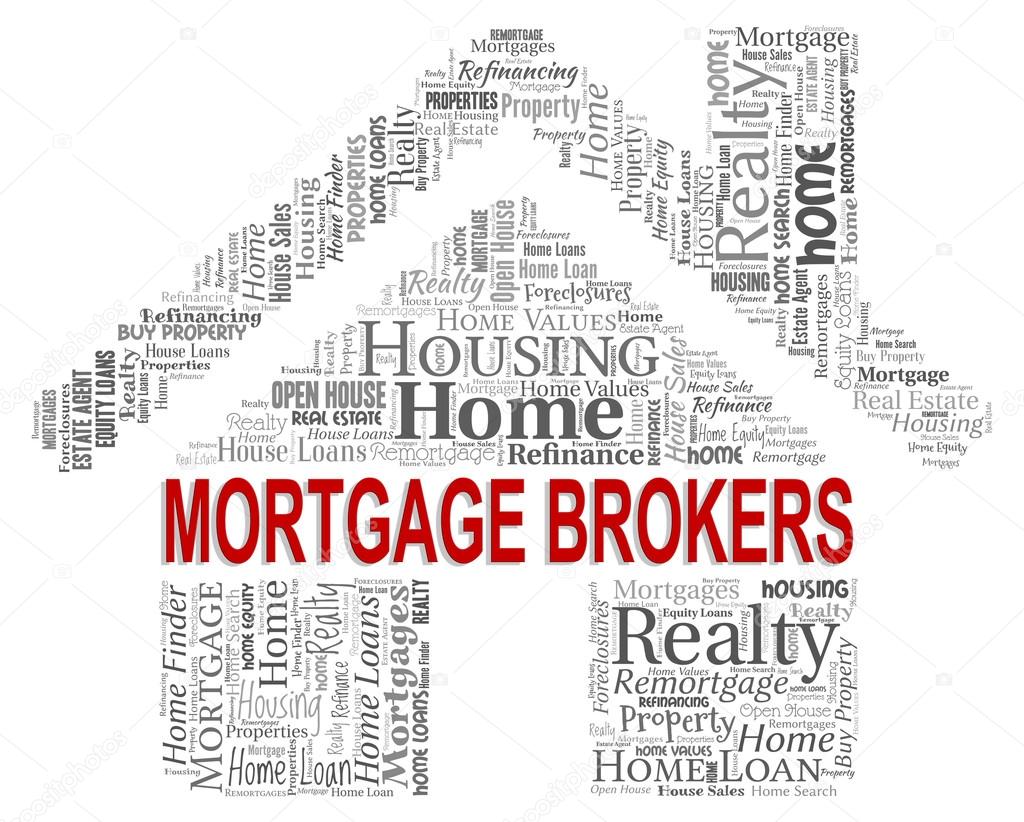Exploring Different Types of Mortgages
When it comes to purchasing a home, securing the right mortgage is crucial. With a variety of mortgage options available, each with its own set of benefits and drawbacks, it’s essential to understand the differences to make an informed decision. This comprehensive guide will delve into the various types of mortgages, helping you determine which one is right for you.

Table of Contents
- Introduction
- Fixed-Rate Mortgages
- Adjustable-Rate Mortgages
- Interest-Only Mortgages
- Balloon Mortgages
- FHA Loans
- VA Loans
- USDA Loans
- Jumbo Loans
- Conclusion
1. Introduction
Purchasing a home is one of the most significant financial decisions you’ll make in your lifetime. With the right mortgage, you can achieve your homeownership dreams while managing your finances effectively. However, choosing the right type of mortgage can be overwhelming. This guide will provide an overview of the most common types of mortgages, their advantages and disadvantages, and tips for selecting the best option for your situation.
2. Fixed-Rate Mortgages
What is a Fixed-Rate Mortgage?
A fixed-rate mortgage is a home loan with an interest rate that remains the same throughout the loan term. This predictability and stability make it one of the most popular options for homebuyers.
Advantages of Fixed-Rate Mortgages
- Predictable Payments: Monthly payments remain consistent, simplifying budgeting.
- Protection from Rate Increases: The interest rate is locked in, shielding you from market fluctuations.
- Long-Term Stability: Ideal for those planning to stay in their home for a prolonged period.
Disadvantages of Fixed-Rate Mortgages
- Higher Initial Rates: Typically have higher initial interest rates compared to adjustable-rate mortgages.
- Less Flexibility: No benefit from potential rate drops unless you refinance, which can incur additional costs.
Who Should Consider a Fixed-Rate Mortgage?
Fixed-rate mortgages are best suited for homebuyers planning to stay in their home long-term and who prefer stable monthly payments.
Related Articles:
- How to Choose Between Fixed and Adjustable-Rate Mortgages
- 5 Tips for Refinancing Your Fixed-Rate Mortgage
Frequently Asked Questions:
- Q: What is the average interest rate for a fixed-rate mortgage?
A: The average interest rate varies based on the market and your credit profile. As of 2024, it ranges between 3.5% to 4.5%. - Q: Can I switch from a fixed-rate to an adjustable-rate mortgage?
A: Yes, through refinancing, but it involves closing costs and other considerations.
3. Adjustable-Rate Mortgages
What is an Adjustable-Rate Mortgage?
An adjustable-rate mortgage (ARM) has an interest rate that can change periodically based on market conditions. Typically, ARMs start with a lower fixed rate for a set period, followed by variable rates for the remainder of the loan term.
Advantages of Adjustable-Rate Mortgages
- Lower Initial Rates: ARMs often offer lower initial interest rates, making them more affordable in the short term.
- Potential for Lower Payments: If market rates decrease, your payments could go down.
Disadvantages of Adjustable-Rate Mortgages
- Unpredictable Payments: After the initial fixed period, your payments can fluctuate, making budgeting more challenging.
- Risk of Rate Increases: If market rates rise, your payments could increase significantly.
Who Should Consider an Adjustable-Rate Mortgage?
ARMs are suitable for homebuyers who plan to sell or refinance before the adjustable period begins or those who anticipate a rise in their income.
Related Articles:
Frequently Asked Questions:
- Q: How often do ARM rates adjust?
A: ARM rates typically adjust annually after the initial fixed-rate period ends. - Q: Can I convert my ARM to a fixed-rate mortgage?
A: Yes, you can convert your ARM to a fixed-rate mortgage through refinancing.
4. Interest-Only Mortgages
What is an Interest-Only Mortgage?
An interest-only mortgage allows borrowers to pay only the interest on the loan for a specified period, usually between 5 to 10 years. After the interest-only period, the borrower must begin paying both principal and interest.
Advantages of Interest-Only Mortgages
- Lower Initial Payments: Payments are significantly lower during the interest-only period.
- Flexibility: Can be beneficial for borrowers expecting a significant increase in income.
Disadvantages of Interest-Only Mortgages
- Higher Long-Term Costs: Once the interest-only period ends, payments can increase dramatically.
- No Equity Build-Up: You don’t build equity in your home during the interest-only period.
Who Should Consider an Interest-Only Mortgage?
Interest-only mortgages are ideal for borrowers with fluctuating incomes, such as business owners or those expecting substantial future earnings.
Related Articles:
Frequently Asked Questions:
- Q: What happens when the interest-only period ends?
A: You will start paying both principal and interest, which will increase your monthly payments. - Q: Can I refinance my interest-only mortgage?
A: Yes, refinancing is an option to avoid the significant payment increase after the interest-only period.
5. Balloon Mortgages
What is a Balloon Mortgage?
A balloon mortgage is a short-term loan with low monthly payments based on a longer amortization period. At the end of the loan term, the remaining balance is due in one lump sum, known as the balloon payment.
Advantages of Balloon Mortgages
- Lower Monthly Payments: Payments are lower compared to traditional mortgages.
- Short-Term Solution: Ideal for those who plan to sell or refinance before the balloon payment is due.
Disadvantages of Balloon Mortgages
- Large Final Payment: The lump-sum payment can be substantial and challenging to manage.
- Refinancing Risk: If you can’t refinance or sell, you may face financial difficulties.
Who Should Consider a Balloon Mortgage?
Balloon mortgages are suitable for borrowers who plan to move or refinance within a few years and can handle the risk of a large final payment.
Related Articles:
Frequently Asked Questions:
- Q: What happens if I can’t make the balloon payment?
A: You may need to refinance, sell the property, or negotiate with the lender to avoid default. - Q: Are balloon mortgages available for commercial properties?
A: Yes, balloon mortgages are also available for commercial properties.
6. FHA Loans
What is an FHA Loan?
Federal Housing Administration (FHA) loans are government-backed mortgages designed for low-to-moderate-income borrowers. They require lower minimum down payments and credit scores compared to conventional loans.
Advantages of FHA Loans
- Lower Down Payments: As low as 3.5% of the purchase price.
- Flexible Credit Requirements: Easier qualification for borrowers with lower credit scores.
- Government Backing: Insured by the FHA, reducing lender risk.
Disadvantages of FHA Loans
- Mortgage Insurance: Requires both an upfront and annual mortgage insurance premium.
- Loan Limits: Maximum loan amounts vary by region and may not cover high-priced homes.
Who Should Consider an FHA Loan?
FHA loans are ideal for first-time homebuyers, those with lower credit scores, or individuals who cannot afford a large down payment.
Related Articles:
Frequently Asked Questions:
- Q: What is the minimum credit score for an FHA loan?
A: The minimum credit score for an FHA loan is typically 580, but some lenders may require higher scores. - Q: Can I use an FHA loan for a second home?
A: FHA loans are generally intended for primary residences, but there are some exceptions.
7. VA Loans
What is a VA Loan?
VA loans are mortgages guaranteed by the U.S. Department of Veterans Affairs, available to military service members, veterans, and eligible surviving spouses. They offer favorable terms and often require no down payment.
Advantages of VA Loans
- No Down Payment: Often require no down payment.
- No PMI: No private mortgage insurance is required.
- **Competitive Interest Rates:** Typically lower than conventional loans.
Disadvantages of VA Loans
- Funding Fee: A one-time funding fee is required, which can be financed into the loan.
- Eligibility Requirements: Only available to eligible veterans and service members.
Who Should Consider a VA Loan?
VA loans are best suited for eligible military service members and veterans looking for favorable loan terms and no down payment.
Related Articles:
Frequently Asked Questions:
- Q: What is the VA loan funding fee?
A: The funding fee is a one-time payment that can be financed into the loan, typically ranging from 1.4% to 3.6% of the loan amount. - Q: Can I use a VA loan more than once?
A: Yes, eligible borrowers can use VA loan benefits multiple times.
8. USDA Loans
What is a USDA Loan?
USDA loans are mortgages backed by the U.S. Department of Agriculture, aimed at rural homebuyers who meet income eligibility requirements. These loans often require no down payment and offer competitive interest rates.
Advantages of USDA Loans
- No Down Payment: 100% financing available.
- Low Interest Rates: Competitive rates for eligible borrowers.
- Flexible Credit Requirements: Easier qualification criteria.
Disadvantages of USDA Loans
- Geographic Restrictions: Only available in designated rural areas.
- Income Limits: Borrowers must meet specific income requirements.
Who Should Consider a USDA Loan?
USDA loans are ideal for low-to-moderate-income homebuyers looking to purchase a home in a rural area with no down payment.
Related Articles:
Frequently Asked Questions:
- Q: What areas are eligible for USDA loans?
A: USDA loans are available in designated rural areas, which can be checked on the USDA’s website. - Q: Are there income limits for USDA loans?
A: Yes, borrowers must meet income limits, which vary by location and household size.

9. Jumbo Loans
What is a Jumbo Loan?
Jumbo loans are mortgages that exceed the conforming loan limits set by the Federal Housing Finance Agency (FHFA). These loans are designed for high-priced or luxury properties and often come with stricter qualification requirements.
Advantages of Jumbo Loans
- Higher Loan Amounts: Allows for the purchase of more expensive properties.
- Competitive Rates: Competitive interest rates for qualified borrowers.
Disadvantages of Jumbo Loans
- Stricter Requirements: Higher credit scores and larger down payments are often required.
- Higher Interest Rates: Can be higher compared to conforming loans.
Who Should Consider a Jumbo Loan?
Jumbo loans are suitable for high-income borrowers looking to purchase luxury or high-priced properties that exceed conforming loan limits.
Related Articles:
Frequently Asked Questions:
- Q: What is the minimum credit score for a jumbo loan?
A: The minimum credit score for a jumbo loan is typically 700, but it may vary by lender. - Q: Can I get a jumbo loan for a second home?
A: Yes, jumbo loans are available for primary residences, second homes, and investment properties.
10. Conclusion
Choosing the right mortgage is a critical step in the home-buying process. By understanding the various types of mortgages available, you can select the best option that fits your financial situation and long-term goals. Whether you prefer the stability of a fixed-rate mortgage, the flexibility of an adjustable-rate mortgage, or the benefits of government-backed loans, there is a mortgage out there to meet your needs.
When considering your options, it’s essential to evaluate your financial situation, future plans, and risk tolerance. Consulting with a mortgage professional can also provide valuable insights and help you navigate the complexities of the mortgage landscape. By making an informed decision, you can secure a mortgage that not only meets your needs but also supports your journey towards homeownership.
